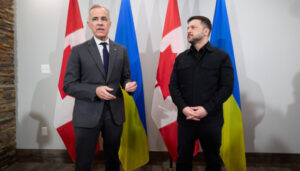
The Greek authorities plan to pass a law in January 2026 reforming the Golden Visa program for investors in order to speed up the processing of applications and eliminate the problem of “backdating” the validity period of residence cards.
The key change concerns the calculation of the five-year validity period of the residence permit: currently, it is often counted from the date of application, which means that due to lengthy processing of documents, the actual validity period of the card obtained is less than five years. It is proposed to start counting from the date of issue of the card so that holders receive the full five-year period from the date of actual receipt of the document.
The reform is also aimed at reducing the administrative burden – it is planned to simplify the procedures for extending permits and reuniting families by reducing the number of stages of consideration.
According to IMI Daily, the number of pending applications under the program exceeded 49,000 in July, although the pace of processing applications has accelerated significantly in 2025. The Golden Visa program provides investors with a renewable residence permit, and in 2024-2025, Greece has already changed the parameters of the program, including real estate investment thresholds and transitional conditions.
Source: http://relocation.com.ua/greece-changes-rules-for-obtaining-golden-visas-from-january/

Espresso in Ukraine has become more expensive again: in 2025, a cup of coffee cost an average of 41 hryvnia, which is 17% more than a year ago, according to the results of the Espresso Index study by Poster POS, conducted for the OpenDataBot service.
According to the study, the price of espresso in Ukraine has doubled since the start of the full-scale war, when a cup cost 21 hryvnia.
As of the end of December, the most expensive coffee in Ukraine is drunk in Lviv — 47 hryvnia per cup, Odessa — 45 hryvnia per cup, and Dnipro — 43 hryvnia per cup.
For the third year in a row, the cheapest coffee is in Khmelnytskyi — 33 UAH/cup, and it is also affordable in Zaporizhzhia and Kropyvnytskyi — 35 UAH/cup.
Over the course of the year, it has risen in price the most in the frontline Sumy region — by 26%. Last year, Sumy region was among the regions with the cheapest coffee.
There is currently no data available for the Ukrainian Autonomous Republic of Crimea and Luhansk region.
The Espresso Index is an economic indicator used to measure the cost of a standard serving of espresso in different cities around the world. It can be useful for comparing price levels and the cost of living in different places. This indicator helps to assess the difference in prices for the same goods and services in different countries and reflects purchasing power and inflation, according to Poster POS.
Ukrainian restaurant automation company Poster POS is a Ukrainian restaurant automation company that develops accounting software for the HoReCa system, which is installed on tablets. More than 50,000 establishments use the developer’s services.

As of December 25, 2025, farmers harvested 57.597 million tons of grain and legumes from 10.55 million hectares, which is 94% of the area, as well as 17.4 million tons of oilseeds from 8.13 million hectares, which is 97.7% of the area they sowed.
According to operational information from the Ministry of Economy, Environment, and Agriculture on the progress of the harvest, 26.45 million tons of corn have been harvested from 3.84 million hectares, 22.96 million tons of wheat from 5.05 million hectares, 5.42 million tons of barley from 1.36 million hectares, 672,500 tons of peas from 275,100 hectares, and 82,700 tons of buckwheat from 10,000 hectares. 5.42 million tons from 1.36 million hectares, peas – 672,500 tons from 275,100 hectares, buckwheat – 82,700 tons from 59,400 hectares, millet – 62,100 tons from 35,800 hectares. The harvest of other cereals and legumes this year reached 934,100 tons from 331,100 hectares as of December 25.
As for oilseeds, as of December 25, the harvest amounted to 3.317 million tons of rapeseed harvested from 1.26 million hectares, 4.81 million tons of soybeans from 2.028 million hectares, and 9.227 million tons of sunflower from 4.838 million hectares.
This year, 10.989 million tons of sugar beets were harvested from 198,800 hectares.
The yield of agricultural crops in Ukraine in the 2025 season was wheat – 45.5 cwt/ha, barley – 39.8 cwt/ha, peas – 24.4 cwt/ha, 71.3 cwt/ha, buckwheat – 13.9 cwt/ha, millet – 17.4 cwt/ha, rapeseed – 26.3 cwt/ha, soybeans – 23.7 cwt/ha, sunflowers – 19.1 cwt/ha, sugar beets – 552.7 cwt/ha.
The Ministry of Economy stated that the largest gap between the actual and projected gross harvest in the grain and legume segment was demonstrated by corn – 87% of the plan, millet (88%), buckwheat (97%), wheat and barley (98%), and buckwheat (97%). Other grains and legumes were harvested at 85% of expectations.
Oil crops showed a higher percentage of fulfillment of the Ministry of Economy’s forecasts: rapeseed – 102%, soybeans – 98%, sunflowers – 93%.
The forecast for sugar beets turned out to be the most realistic – 100% of the plan.
As reported, the Ministry of Economy estimated the area under wheat in 2025 at 5.135 million hectares, a year earlier this figure was 4.884 million hectares (+5.1%), barley – 1.386 million hectares against 1.398 million hectares a year earlier (-0.1%), peas – 277.8 thousand hectares against 210.4 thousand hectares (+32%), corn – 4.399 million hectares against 4.070 million hectares (+8.1), buckwheat – 61.4 thousand hectares against 90.3 thousand hectares (-32%), millet – 40.5 thousand hectares against 92.6 thousand hectares (-56.3%), other cereals and legumes – 345.7 thousand hectares against 360.3 thousand hectares (-4.1%).
The production area under rapeseed in 2025 was 1.24 million hectares compared to 1.26 million hectares a year earlier (-1.6%), soybeans – 2.063 million hectares compared to 2.714 million hectares (-24%), sunflowers – 5.189 million hectares compared to 5.028 million hectares (+3.2%).
The area under sugar beets this year was reduced by 21.5% to 199 thousand hectares.
Ukrainian farmers finished harvesting on November 22, 2024. At that time, 98% of the planned harvest had been obtained.

Canadian Prime Minister Mark Carney announced additional economic assistance to Ukraine in the amount of 2.5 billion Canadian dollars, which will help unblock funding from the IMF, the World Bank, and the European Bank for Reconstruction and Development.
“Today we are announcing additional economic assistance to Ukraine. Economic assistance in the amount of $2.5 billion. This will help unlock funding from the IMF, the World Bank, and the European Bank for Reconstruction and Development to start this recovery process,” Carney said at the beginning of his meeting with Ukrainian President Volodymyr Zelensky.
In turn, Zelensky thanked Carney for his help and stressed the need to stop the war.
“And for this, we need two things: pressure on Russia and sufficiently strong support for Ukraine,” the president said.
He said he plans to discuss strengthening air defense with Carney.
“In recent weeks, we have made good progress in diplomacy, but we cannot live under the illusion that this allows us to have less air defense. It doesn’t work with Russia,” Zelenskyy said.

Yulia Savostina, founder of the Made in Ukraine project, volunteer, and expert on intangible cultural heritage at the Office for Support of Recovery at the Ministry of Culture and Strategic Communications, has become head of the Re-Inform news agency under the Ministry of Social Policy, Family, and Unity of Ukraine.
“I will try not only to use my managerial skills and creativity, but also to establish communication with Ukrainians abroad, trying to reach the most remote places in the world where the great war has scattered us,” Savostina wrote on Facebook on Friday.
According to her, Re-Inform will maintain contact with Ukrainians abroad, inform them about social programs in Ukraine, “explain what is happening at home so that people in Paris, Warsaw, and Toronto do not think that we are just sitting here without electricity; it will combat misinformation and disinformation.”
“The work is difficult and important. Because Ukrainians around the world need to know that they are expected and remembered here. And that Ukraine is not only about war and survival, but also about work, development, opportunities, and life,” Savostina wrote.
She thanked the Minister of Social Policy, Family, and Unity, Denys Ulyutin, “for the offer and trust” and noted the support of the Deputy Minister for European Integration, Ilona Gavronska.

Vadym Honcharenko, a student at Kyiv National University of Construction and Architecture and a veteran, has joined the Ukrainian national team that will represent the country at the Air Force and Marine Corps Trials international veterans and military competition in the United States in 2026. This was reported by the Come Back Alive Charitable Foundation’s Center for Initiatives.
Based on the results of the selection process, 15 veterans—winners of the All-Ukrainian Defense Forces Competition “GART”—joined the team.
The formation, preparation, and participation of the Ukrainian team in international competitions are carried out jointly by the Ministry of Veterans Affairs of Ukraine and the Come Back Alive Initiative Center.
The Air Force and Marine Corps Trials are international adaptive competitions for military personnel and veterans, which are an official stage of selection for the Warrior Games. They are held annually in the United States and bring together participants from around the world, becoming an important element of the international sports and rehabilitation movement for veterans.
Vadym Honcharenko’s sporting achievements
Throughout 2025, Vadym Honcharenko demonstrated results in a number of adaptive and strength sports. He became the Ukrainian champion in para-arm wrestling and also represented Ukraine at the European Championships.
Throughout the year, Vadym repeatedly participated in functional and team sports competitions, including the Spartan Race, marathons, rugby, and CrossFit competitions. In November, he won the Zvytyaga Nezkonenyh (Victory of the Unconquered) strongman competition among military personnel and veterans, taking first place in several strength disciplines. The end of the year was marked by new prize places in rowing, powerlifting, and strongman multi-event competitions.